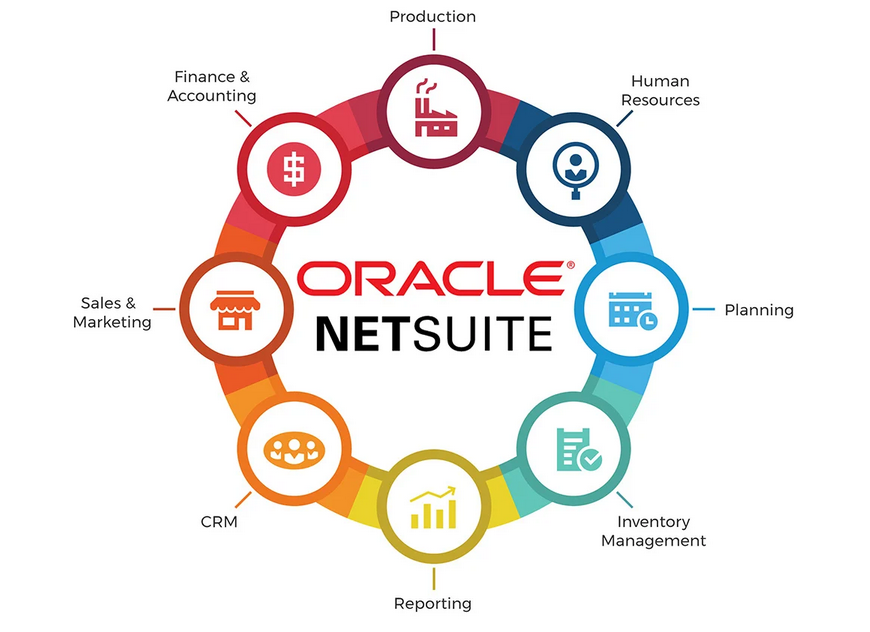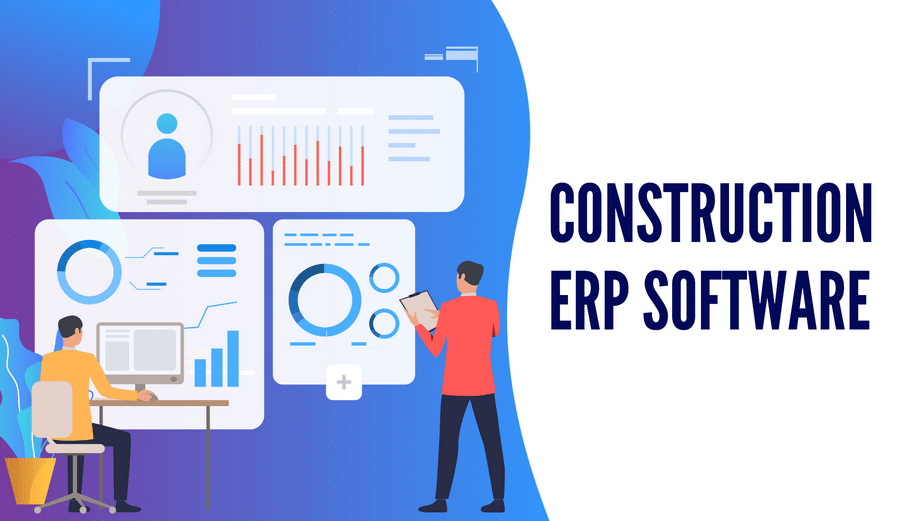Netsuite ERP is a comprehensive enterprise resource planning (ERP) system that has gained significant traction in the business world for its robust features and flexibility. It offers a wide range of functionalities designed to streamline operations, enhance productivity, and provide valuable insights for informed decision-making.
Introduction to Netsuite ERP
What is Netsuite ERP?
Netsuite ERP is a cloud-based solution that combines various business processes into a single, integrated platform. It encompasses modules for financial management, customer relationship management (CRM), inventory management, supply chain management, and more. This unified approach eliminates the need for multiple disparate systems, resulting in greater efficiency and data consistency.
Importance of Netsuite ERP in modern business
In today’s fast-paced and competitive business environment, organizations need scalable and agile solutions to stay ahead. Netsuite ERP offers the flexibility and scalability required to adapt to changing business needs and seize new opportunities. Its cloud-based nature also allows for remote access, enabling seamless collaboration and decision-making regardless of geographical location.
Key Features of Netsuite ERP
Cloud-based system
Netsuite ERP operates on a cloud-based infrastructure, providing users with anytime, anywhere access to critical business data and applications. This not only enhances flexibility but also reduces the burden on IT resources and infrastructure maintenance costs.
Integrated business management suite
One of the standout features of Netsuite ERP is its fully integrated suite of business management tools. From financials to inventory to customer management, all modules work seamlessly together, ensuring data consistency and accuracy across the organization. This integration also facilitates real-time reporting and analytics, enabling stakeholders to make data-driven decisions quickly.
Customization options
Netsuite ERP offers extensive customization capabilities, allowing organizations to tailor the system to their unique business requirements. Whether it’s customizing workflows, adding new fields, or developing bespoke applications, Netsuite provides the flexibility needed to adapt the system to evolving business needs without the need for extensive coding or development.
Benefits of Implementing Netsuite ERP
Streamlined operations
By consolidating core business functions into a single platform, Netsuite ERP streamlines operations and eliminates inefficiencies associated with disparate systems and manual processes. This results in improved productivity, reduced operational costs, and faster time-to-market for products and services.
Improved efficiency and productivity
With automated workflows, real-time data access, and advanced reporting capabilities, Netsuite ERP empowers employees to work more efficiently and make informed decisions. Tasks that once required manual intervention can now be automated, freeing up valuable time for strategic initiatives and value-added activities.
Enhanced visibility and reporting
Netsuite ERP provides stakeholders with a comprehensive view of the organization’s performance through customizable dashboards, reports, and analytics tools. This visibility into key metrics and KPIs enables proactive decision-making and helps identify areas for improvement and optimization.
How Netsuite ERP Helps Different Business Functions
Finance and Accounting
Netsuite ERP streamlines financial processes such as invoicing, billing, and reconciliation, ensuring accuracy and compliance with regulatory requirements. It also provides real-time visibility into financial performance, enabling finance teams to make data-driven decisions and drive business growth.
Sales and Marketing
Netsuite ERP helps sales and marketing teams effectively manage leads, opportunities, and customer relationships through its integrated CRM module. By tracking interactions and analyzing customer data, organizations can personalize marketing campaigns, improve sales forecasting, and drive revenue growth.
Inventory Management
With Netsuite ERP’s inventory management capabilities, organizations can optimize stock levels, reduce carrying costs, and minimize stockouts. Advanced features such as demand planning, vendor management, and warehouse optimization ensure efficient inventory management across the supply chain.
Human Resources
Netsuite ERP’s human resources module simplifies HR processes such as employee onboarding, payroll management, and performance tracking. It also provides self-service portals for employees, enabling them to access relevant HR information and services anytime, anywhere.
Case Studies: Successful Implementation of Netsuite ERP
Company A: Streamlined operations and improved customer service
Company A, a manufacturing company, implemented Netsuite ERP to replace its legacy systems and streamline operations. By centralizing data and automating key processes, the company was able to reduce lead times, improve order accuracy, and enhance customer service levels.
Company B: Increased sales and revenue growth
Company B, a retail chain, leveraged Netsuite ERP to gain better visibility into its inventory and sales data. This enabled the company to optimize stock levels, reduce out-of-stock situations, and improve sales forecasting accuracy, resulting in increased sales and revenue growth.
Challenges and Considerations in Netsuite ERP Implementation
Initial setup and configuration
While Netsuite ERP offers extensive customization capabilities, implementing the system requires careful planning and configuration to align with organizational requirements. Organizations must invest time and resources in defining workflows, setting up user roles, and migrating data from legacy systems.
Data migration and integration
Data migration can be a complex process, especially when transitioning from legacy systems or disparate databases. Organizations must ensure data accuracy and consistency during the migration process and establish seamless integration with other business-critical applications and systems.
Training and user adoption
User adoption is critical to the success of any ERP implementation. Organizations must provide comprehensive training and support to end-users to ensure they are comfortable using the new system and understand its benefits. Change management strategies should also be implemented to address any resistance to adoption and drive organizational buy-in.
Future Trends in Netsuite ERP
AI and machine learning integration
Netsuite ERP is expected to incorporate more AI and machine learning capabilities in the future, enabling predictive analytics, intelligent automation, and personalized insights. These technologies will further enhance decision-making, automate repetitive tasks, and drive operational efficiency.
Mobile optimization
As mobile usage continues to rise, Netsuite ERP is likely to focus on optimizing its platform for mobile devices, allowing users to access critical business data and applications on the go. Mobile-friendly interfaces and native mobile apps will enable greater flexibility and productivity for users across the organization.
Industry-specific solutions
Netsuite ERP is increasingly catering to specific industries with tailored solutions and vertical-specific functionality. Whether it’s manufacturing, retail, healthcare, or professional services, Netsuite is continuously expanding its offerings to address the unique needs and challenges of different industries.
Conclusion
Netsuite ERP is a powerful solution for organizations looking to streamline operations, improve efficiency, and drive growth. Its cloud-based platform, integrated suite of business management tools, and extensive customization options make it a versatile choice for businesses of all sizes and industries. By leveraging Netsuite ERP, organizations can gain a competitive edge in today’s dynamic business landscape.
FAQs
Is Netsuite ERP suitable for small businesses?
Yes, Netsuite ERP offers scalable solutions that cater to the needs of small and medium-sized businesses (SMBs). Its flexible pricing options and modular architecture make it accessible to organizations of all sizes.
Can Netsuite ERP be customized to fit specific business requirements?
Absolutely, Netsuite ERP provides extensive customization capabilities, allowing organizations to tailor the system to their unique business needs without the need for extensive coding or development.
What kind of support does Netsuite offer for implementation and ongoing maintenance?
Netsuite offers comprehensive support services, including implementation assistance, training programs, and ongoing technical support to ensure a smooth transition and continued success with the platform.
Is Netsuite ERP secure for storing sensitive business data?
Yes, Netsuite ERP employs industry-leading security measures to safeguard sensitive business data, including encryption, access controls, and regular security updates to protect against cyber threats.
Can Netsuite ERP integrate with other third-party applications and systems?
Absolutely, Netsuite ERP offers robust integration capabilities, allowing seamless connectivity with a wide range of third-party applications and systems to streamline operations and enhance productivity.



